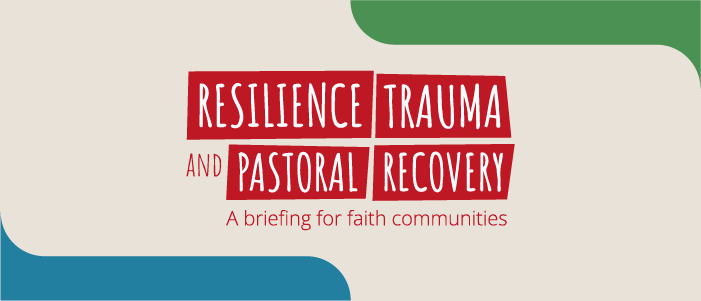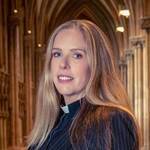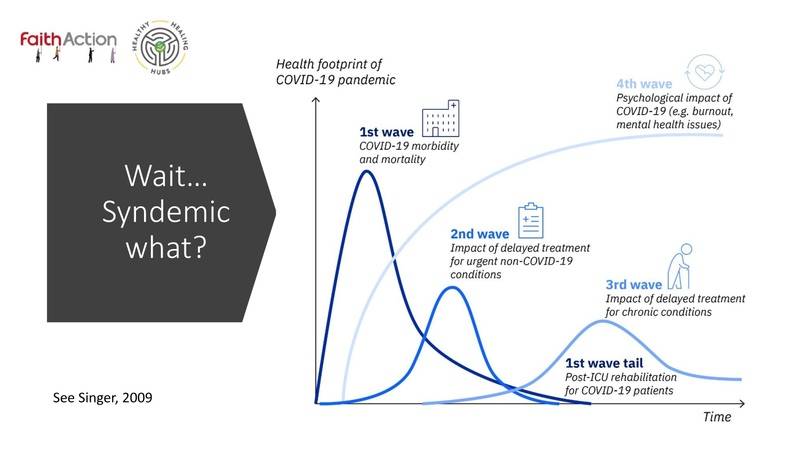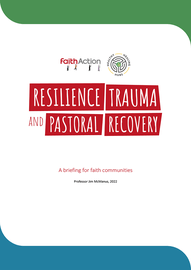Resilience, Trauma, and Pastoral Recovery: Why we commissioned this paper

Today, we launch our new report—Resilience, Trauma, and Pastoral Recovery—in partnership with the Guild of Health and St Raphael. Revd Dr Gillian Straine, CEO of The Guild of Health and St. Raphael and originator of The Healthy Healing Hub project gives us some background on the report.

Trained to doctorate level in science and master’s degree in theology from the University of Oxford, Gillian is passionate about engaging others about these twin magisteria. With experience of project management, high level research and trained in communications, she directs a charity focused on healing and health, working to promote spiritual healing as part of an whole person approach to health.
She is elected fellow of the International Society for Science and Religion, chairperson of The Science and Religion Forum, trustee of the Christian Evidence Society and visiting scholar at Sarum College within the Centre for Human Flourishing.
Publications include: Are there limits to science?, CSP (2017), ed., Cancer: A Pilgrim’s Guide , SPCK (2017), Introducing Science and Religion: A path through Polemic, SPCK, 2014
For over 100 years, The Guild of Health and St Raphael has been talking about the importance of the healing ministry for the mission of the church.
Just before the pandemic, we had decided to focus our work with churches in the Healthy Healing Hub project to train, resource, and network churches to be hubs for healing for the whole community by teaching on healing, elevating the healing potential of pastoral ministry and outreach, and encouraging the value of local partnerships.
And then the pandemic hit. And while the mission remains focused, the world inside and outside the church has changed dramatically.
My team and I have been working with a large number of churches of many denominations throughout the pandemic. As Prof. McManus outlines in the paper we are launching today, he advises that we think of this emergency not as a pandemic, but as a syndemic—where a number of impacts (e.g. physical, social, financial, or emotional) combine together to create an effect which is worse than any one individually.
And we have seen this so clearly in the lives of church leaders who were not only dealing with the impact of the pandemic personally, but with a community focus for hope, worship, and healing.
The word trauma started to be used quite early in the syndemic, particularly by those who had experience of other similar emergencies. And, as I worked with my team in the Healthy Healing Hub project, we had almost a visceral experience of that word trauma getting louder and louder as I listened to stories of anger, confusion, and doubt. A recent report found that 42% of clergy reported their mental wellbeing to be worse and 44% reported feeling more isolated in their ministry since before the pandemic. We have an uncertain future: our leaders are traumatised, and they are leading in communities that are traumatised, in a declining institution.
And so, with FaithAction, we commissioned this report as a first step. And an important first step it is—to understand what we have gone through, and what this has done to our leaders and the communities they are serving. It is both a toolkit and the beginning of a vital conversation we must have if we are going to grow the church and be a source of healing and hope in the community. We must take a both/and approach, and this is what this report does – to understand what our leaders have gone through AND how to lead. And you cannot do either of those things without examining trauma.
What I hope that this report does is to help leaders understand the impact of trauma in order to give confidence to church leaders and to begin the conversation that is most vital today—how to express the good news of Jesus Christ in the world as it is today.
Watch the launch
The report was launched at an online event featuring:
- Daniel Singleton, National Executive Director, FaithAction
- Rev Dr Gillian Straine, CEO, The Guild of Health & St Raphael
- Prof Jim McManus, Director of Public Health for Hertfordshire County Council and President of the Association of Directors of Public Health
- Raymond Friel, Chief Executive Officer, Caritas Social Action Network
- Bishop Paul Rochester, General Secretary, Free Churches Group and Regional Bishop for Church of God of Prophecy, London & South East & Senior Pastor for Church of God of Prophecy, Croydon
- Prof Christopher Southgate, Professor of Christian Theology, University of Exeter
Download the report

The report was written by Professor Jim McManus, Director of Public Health for Hertfordshire County Council and President of the Association of Directors of Public Health (ADPH).
He is a Chartered Psychologist, Chartered Scientist and Fellow of the British Psychological Society. He led ADPH policy work on local outbreak plans and COVID-19 suppression, co-created the national public mental health collaborative for COVID-19, and co-chaired the national review of suicide prevention plans in England.
He has just completed three years as Chair of the Behavioural Science and Public Health Network and was a co-author of the National Strategy for Behavioural Science in Public Health. Jim has worked on population level trauma and recovery after disasters and has previous experience of setting up trauma response networks. He has produced a guide on post-COVID trauma and recovery for public health systems.
He is a man of faith and advisor to the Archbishops of the Catholic Church in England, was a member of the government’s Places of Worship Taskforce on COVID, and is the president of the Guild of Health and St Raphael.




